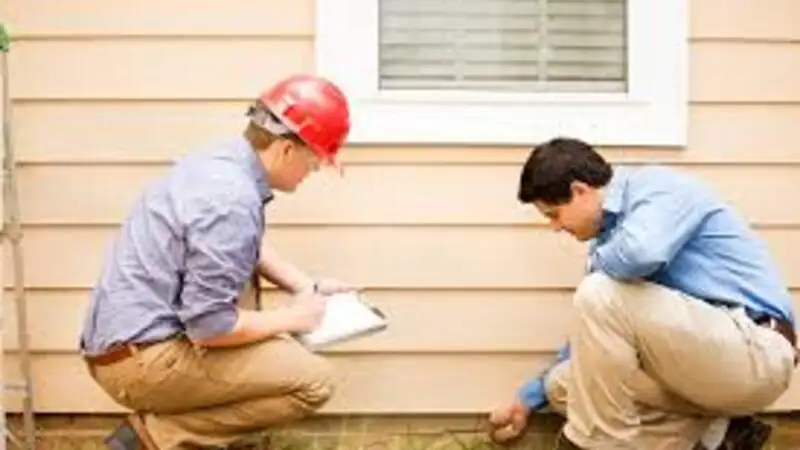Key Takeaways
- Home inspections unveil the true condition of a property, allowing buyers to make informed decisions.
- A comprehensive checklist helps identify potential issues, empowering buyers in negotiations.
- Professional inspection services provide detailed insights that are invaluable during the buying process.
Introduction to Home Inspections
Buying a home inspection is a monumental step, often representing one of the greatest investments in a person’s life. Whether you’re embarking on your first purchase or expanding your real estate portfolio, understanding what lies beneath the surface is crucial. Preserving the long-term value of your investment requires more than just admiration of the aesthetics. Home inspections are your safeguard against unseen issues—those lurking problems that might transform your dream home into a costly nightmare. They provide the necessary peace of mind and help ensure that when you purchase a home, it’s a sound investment rather than a surprise-filled venture.
Why Home Inspections Matter
Home inspections reveal the true condition of a property, offering critical insights that aren’t immediately obvious. They uncover hidden problems that could be costly if left unaddressed, such as structural damage, electrical faults, or plumbing leaks otherwise invisible during a casual viewing. These issues, if unnoticed, might require substantial financial and emotional investment in the future. Inspections become indispensable for empowering buyers with leverage in price negotiations or contract amendments. Informed buyers can make confident decisions, reducing the likelihood of unpleasant surprises post-purchase. Knowing the full scope of a home’s condition eliminates guesswork and helps ensure agreements are made with transparency.
The Comprehensive Checklist
- Structure and Foundation: Look for cracks in walls, uneven floors, or doors and windows that don’t close properly. These signs often indicate underlying structural issues which can be expensive to fix. Structural soundness is paramount to a home’s safety and longevity.
- Roof Condition: Inspect for missing shingles, leaks, or damaged flashing that might indicate necessary repairs. A well-maintained roof protects the entire home, preventing water damage and fostering its longevity and energy efficiency.
- Plumbing Systems: Check for leaks, proper drainage, and water pressure. Inspect the water heater for age, capacity, and energy efficiency, ensuring it can accommodate your household needs without excessive costs.
- Electrical System: Verify that all outlets work correctly, and the circuit breaker is compliant with modern codes, and look for exposed wiring which could present safety hazards. Safe and updated electrical systems prevent potential fire risks.
- HVAC System: Evaluate the heating and cooling units for functionality and efficiency. Ensuring the HVAC system is in good working order is essential for comfort and energy savings. A well-maintained system can significantly affect utility costs [source].
- Interior Rooms: Examine all walls, floors, and ceilings for signs of mold, water stains, or damage, which might suggest more extensive issues. Interior conditions affect living comfort and health.
- Basement and Attic: Look for signs of water intrusion, mold, or pest infestation. These areas often indicate issues that can have repercussions for the entire house if ignored.
- Windows and Doors: Check for operation, seals, and overall condition to achieve energy efficiency and security. Quality windows and doors contribute to lower energy costs and provide security.
The Role of Professional Inspectors
Professional inspectors bring expertise that the average buyer might lack, uncovering issues that could be overlooked in a casual review. Their detailed reports offer invaluable insights during negotiation, pinpointing both immediate problems and potential future concerns. Hiring a qualified inspector with a good track record is critical; recommendations from past clients or favorable online reviews can guide your selection. A professional’s educated perspective provides additional security, ensuring you fully understand the implications of your purchase.
Common Home Inspection Pitfalls
Even with solid plans, common pitfalls include ignoring minor issues that might escalate or underestimating maintenance costs over time. Buyers might also focus too narrowly on cosmetic appearances, overlooking fundamental defects. It’s essential to recognize that while no property is perfect, being informed helps address concerns judiciously and avoid regretful decisions. For more insights, check out this comprehensive guide. It offers a deeper understanding of typical pitfalls and ways to mitigate them.
Navigating Post-Inspection Decisions
Once the inspection report is in hand, the next critical step involves negotiating repairs or price reductions with the seller. Buyers can request that the seller address significant issues or alternatively offer a better deal to offset potential repair costs. This stage requires strategic negotiation and sometimes mediation from real estate agents to achieve a satisfactory agreement for both parties involved. Addressing these issues upfront can save substantial resources and guide you toward a fair buying decision.
Preparing for a Home Inspection: Buyer Tips
- Do your Homework: Understand what inspectors typically look for so you’re not caught off guard by findings. This knowledge helps you make quicker sense of potential concerns and allows meaningful participation during the inspection.
- Attend the Inspection: Gaining firsthand knowledge of the property’s condition offers insights beyond reading the report alone. Attending provides the opportunity to ask questions immediately and clarify uncertainties with the inspector during the process.
- Keep an Open Mind: Use inspection results to make informed decisions, looking beyond aesthetics alone. Recognizing deal-breakers from simple fixes aids in honest evaluations, ensuring the purchase aligns with long-term needs and aspirations.
Conclusion: Making an Informed Decision
A thorough home inspection is critical in the journey to owning a home. It’s not just about uncovering flaws; it’s about understanding a house’s full story and assuring that the home you choose supports a thriving, happy future. By investing in a detailed inspection, you’re setting the stage for a confident and informed purchase. Remember, knowledge empowers you to make one of the most significant decisions—your choice of home, a place that truly fulfills both emotional and financial well-being.
Contact Us For More Information

